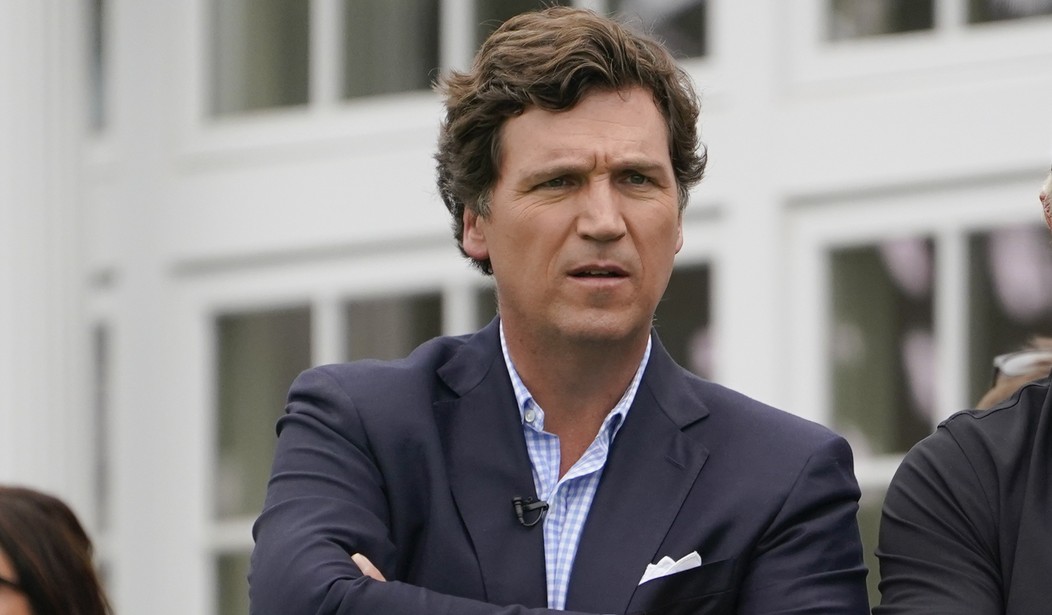
The cutting of ties between Fox News and media personality Tucker Carlson is still on everyone’s minds. The fallout from the decision continues to reverberate throughout the airwaves and interwebs and commentary from the chattering class has not even begun to slow down.
Conversations on the matter are rife with speculation as to the network’s reasons for letting Carlson go and where the former news host will end up next. Needless to say, this development has sent shockwaves through the realm of media.
While it is not yet possible to know Fox News’ true motives, comments Carlson made last month about some of the regrets he has regarding his extensive career might offer a clue.
During an interview, Carlson expressed regret for his past actions and acknowledged the role of the media in what he calls the “control apparatus.” He admitted to defending the Iraq War and not being more skeptical in his career. He acknowledged dismissing those who thought outside of the mainstream narrative as “crazy” or “conspiracy theorists.” But now, he sees the media as serving a small group of people who control the world, and he advocates for treating them with contempt.
Tucker Carlson Says He Regrets Working for the Media ‘Control Apparatus’
“Their job is not to inform you. They are working for the small group of people who actually run the world.” pic.twitter.com/jHrj94m1rB
— Janebond (@Janebon34813396) April 25, 2023
Tucker’s remarks in this interview were spot on. Unfortunately, most people are not aware of the media’s role in acting as both a weapon and a bulwark for the state. Indeed, the once-vaunted Fourth Estate has contributed greatly to promoting the interests of the elites who run the government and continues to do so unbeknownst to the public.
READ RELATED: Father of 'non-binary child' says he will 'follow' his child – Shouldn't parents lead?
It reminds me of a reality that libertarian author Murray Rothbard pointed out in his book, “Anatomy of the State.” He wrote about how governments form symbiotic alliances with the intellectual class, which shapes public opinion in a way that benefits the security and growth of the state. He wrote:
For this essential acceptance, the majority must be persuaded by ideology that their government is good, wise and, at least, inevitable, and certainly better than other conceivable alternatives. Promoting this ideology among the people is the vital social task of the “intellectuals.” For the masses of men do not create their own ideas, or indeed think through these ideas independently; they follow passively the ideas adopted and disseminated by the body of intellectuals. The intellectuals are, therefore, the “opinion-molders” in society. And since it is precisely a molding of opinion that the State most desperately needs, the basis for age-old alliance between the State and the intellectuals becomes clear.
Essentially, Rothbard articulated a deeper explanation of what Carlson is describing today. The press is a part of the intellectual class of “opinion molders” whose job is to tell us what our opinions, arguments, and actions should be.
However, whether he was right or wrong, Carlson chose to use his platform to tell the truth the way he saw it. This meant going after problematic elements on the left and right. He had no problem calling out Republicans when he deemed it necessary. Being more of a populist, he does not neatly fit into conservative orthodoxy.
Perhaps Fox News letting Carlson go is a harbinger of the direction Fox News is going. It is possible that the network is focused on purging populism from its programming and seeking to return to a more traditional, establishment-conservative approach. Remember, the network, along with most others, was instrumental in shaping public opinion in favor of the Iraq war and the overall War on Terror that resulted in the creation of the Patriot Act and resulted in the unnecessary deaths of many people worldwide.
The populist, anti-establishment wing of the conservative movement does not have the hunger for war that the traditional Republican types have. But they also differ in numerous other ways as well. Days before Carlson left the network, conservative commentator Dan Bongino also departed.
Yes, some of the network’s more populist types remain at the company. But how long will that last? If Fox News is going in a more “safe” direction, then it would not be surprising if they returned to a more moderate approach. The question is: Will this gambit pay off?
The opinions expressed by contributors are their own and do not necessarily represent the views of RedState.com.
Trending on RedState Video
Source:






